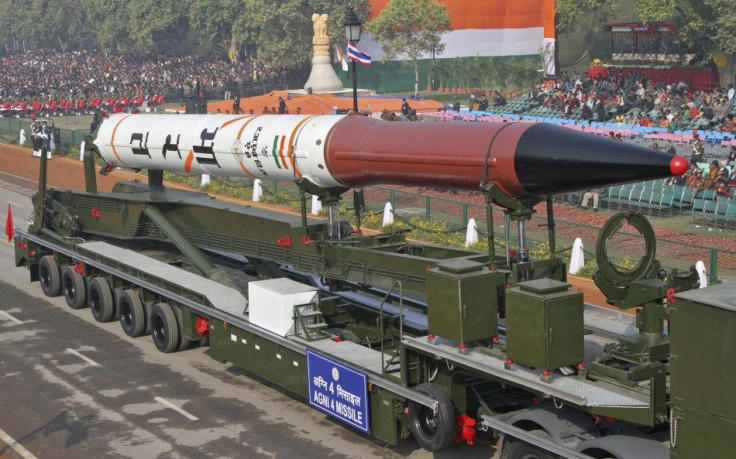India To Test Launch Missile Capable Of Targeting China And Europe

India will test launch a long-range, nuclear-capable missile this week, an exercise that could give its military the ability to target parts of northern China and eastern Europe.
India's Defense Research and Development Organization (DRDO) said the maiden launch of the intercontinental Agni-V missile, which has a range of more than 5,000 kilometers, has been planned between Wednesday and Friday, the Agence France Presse reported.
Agni-V is a 5,000-plus kilometer range missile and it is to meet our present-day threat perceptions, which are determined by our defense forces and other agencies, DRDO spokesperson Ravi Gupta told AFP. He said the exact date of the launch hasn't been set due to the logistics issues involved. An official, who wished to remain anonymous, told Bloomberg that the missile may be launched from the eastern Indian state of Odisha.
The test flight would catapult India into the league of nations like China, Russia, France, the US, Great Britain and Israel which have intercontinental missile capabilities.
DRDO maintained that the missile launch is not to threaten any particular nation and is purely defensive.
This is a deterrent to avoid wars and it is not country-specific, Gupta said. Besides, India has a no-first-use policy, he said, adding that the country's missile development program is purely defensive.
Defense analysts said the missile launch is intended to neutralize the threat from China. This missile is about neutralizing the threat coming from China, Uday Bhaskar, an analyst at the New Delhi-based National Maritime Foundation told Bloomberg. The tests are about trying to create equality with China rather than trying to outdo it.
The Agni-V, the most advanced version of the indigenously built Agni series, is powered by solid rocket propellants that can be transported by road, a Reuters report said.
Meanwhile, India will discuss with the US assistant secretary of state for political military affairs, Andrew Shapiro, the transfer of military technology to build the FGN-148 Javelin anti-tank missile at home.
The Javelin sale, which could earn a billion-dollar contract for the US companies Raytheon and Lockheed Martin, has been blocked by the US department of political military affairs, on the grounds that the technology is potentially too sensitive to transfer.
© Copyright IBTimes 2025. All rights reserved.






















